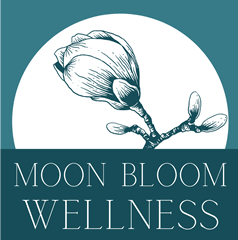In my work as a therapist, and in my personal life, it’s obvious that people are seeking to enjoy their experience here on earth. What this looks like is different for each person, but what many people have in common is the bad habit of self-comparison, which decreases life satisfaction and can make joy seem elusive.
What is self-comparison?
Social comparison theory proposes that our subjective well being is determined by how we evaluate ourselves in comparison to other people. This happens in three ways. We engage in upward social comparison, which means comparing ourselves to someone that we’ve judged as being better than ourselves. We compare laterally, with people who we’ve determined are at about our level. And finally, we compare downward, with people we’ve judged as not being as good as ourselves.
Why might this be a problem?
Because if our sense of well being is in flux depending on who we happen to be comparing ourselves to at the moment, then we create a situation in which we are striving to be better in ways that may not be constructive. It’s one thing to be inspired to move further in your career because you admire what an accomplished friend has achieved, but this becomes problematic when you feel like you are not good enough until you achieve this goal.
Self-comparison can be so automatic that we don’t notice it. In working with clients, I’ve seen the thoughts become so ingrained that when the tendency to compare was pointed out, the client was surprised because they didn’t realize they were doing it – even though the behavior was creating intense emotional distress for them on a regular basis.
When we compare ourselves to others, we don’t feel like (we have) enough
Another problem with comparing ourselves to others is that it can cause a lack appreciation for what we have. This can range from items like the car someone is driving, the house they live in, or the job they have, to things like perceiving someone as more attractive, talented, likable, and so on. We lose touch with the positive things in our own life, because they pale in comparison to what we see someone else having.
…and it can impact our mental health and behavior
A study in the Journal of Adult Development found that, “people who said they made frequent social comparisons were more likely to experience envy, guilt, regret, and defensiveness, and to lie, blame others, and have unmet cravings.” Not only is comparing ourselves to others not helpful, it is destructive.
What can we do to decrease self-comparison?
- Be aware of how your use of social media is affecting you. A study published in Young Consumers found that, “…increase of social media use leads adolescents and young adults to create high social comparisons and materialistic values.” That’s not to say that you shouldn’t use social media, but get clear on your personal values and the thoughts and feelings you are having when you are scrolling through your social media so you can stay true to yourself and be kind to yourself.
- Practice gratitude. A daily gratitude practice can help you to focus on what you appreciate, rather than what you lack. There are also scientifically proven benefits of practicing gratitude, like improvement in mental strength, self-esteem, sleep, empathy, psychological health, and physical health.
- Consider minimalism. “Omit needless things,” a principle from William Strunk, Jr.’s book, The Elements of Style, captures the spirit of minimalism. Minimalism can help us cultivate a value system that will lead to a richer and more joyful life and help us to avoid social comparison. Social comparison can lead to materialism (think keeping up with the Joneses), and materialism is linked to lower life satisfaction. When practicing minimalism, you cultivate a more authentic sense of self-worth that isn’t rooted in how well you are doing in relationship to someone else. You also free up resources, as well as mental and emotional energy because you aren’t purchasing stuff you don’t need or searching for emotional satisfaction in possessions.

